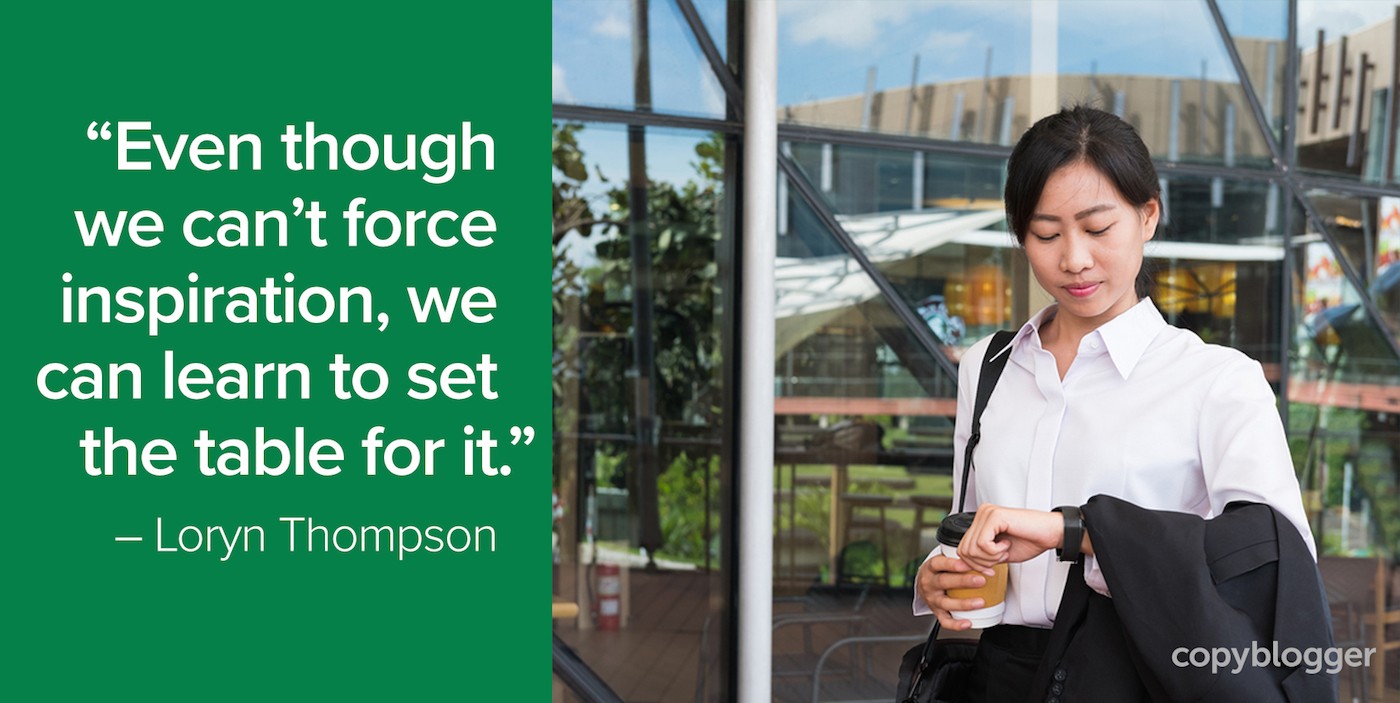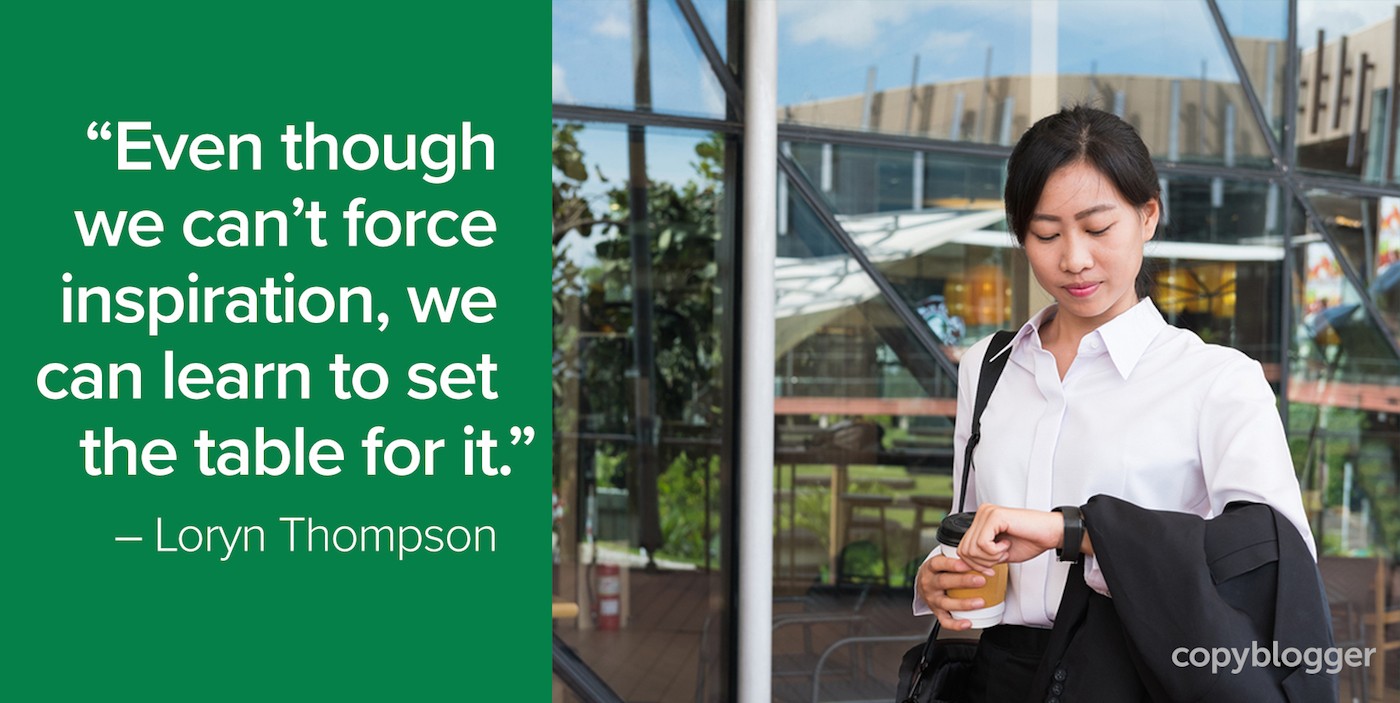After the gym, I headed for a coffee shop, which is where I sit now, hammering out this post. The one thing I’ve learned is this: context matters. The first step of learning to use this magic for yourself is to pay attention to your habits and your feelings. What time of day is it? Everyone has cues and habits that help them work. Plan your day to take advantage of your productivity cues Once you’ve figured out a few things that set the stage for your productivity, it’s time to put them to work by developing a daily routine that supports those cues. Like a school bell ringing to let students know it’s time to go to class, the radio serves as a physical cue that helps me know it’s time to get ready for work, which in turn helps set me up for a productive day. The less work you have to do to be productive, the more energy you’ll have to get work done. You don’t protect your routine by neglecting your responsibilities or by forcing yourself to follow your routine when you’re having an off day. For example, listening to music on my headphones helps me get into the zone and focus.

When I sat down to write this post, I drew a blank. I knew what I wanted to write about, but the words just weren’t there.
My head was empty — a smooth, cavernous zilch.
So I answered some emails. And then I went to the gym. After the gym, I headed for a coffee shop, which is where I sit now, hammering out this post.
It might seem like I was procrastinating — and in a way, I was. But these procrastinatory steps were actually some of my tried-and-true tricks for getting my mind in the mood to write.
An unavoidable part of being a writer is that inspiration doesn’t always come through for us. And no matter how hard you try, you can’t force it.
But here’s a secret:
Even though we can’t force inspiration, we can learn to set the table for it.
How environment influences your productivity
For the past year or so, I’ve been obsessed with the connection between the self and the physical world.
I’ve read dozens of books and even experimented on myself.
The one thing I’ve learned is this: context matters.
As much as we’ve tried to forget it, we are creatures of space and time. We’ve managed to sidestep many limitations of both, by building machines to do things we could never have done on our own.
But that hasn’t changed the fact that simple environmental cues still influence our behaviors. Unnatural blue light keeps us up late into the night, tempers flare up more often in the heat, and the presence of a cell phone on the table decreases the quality of our conversations.
Of course, not all environmental cues are negative. In fact, some are quite useful.
In her book Alone Together, researcher Sherry Turkle observes:
“Humans are skilled at creating rituals for demarcating the boundaries between the world of work and the world of family, play, and relaxation.”
Weekends, weekdays, family dinners, changing out of work clothes when we get home — these are all boundaries people have built to separate work and leisure.
This kind of structure — the confluence of time, place, and sensation — helps us move through our day, seamlessly transitioning from one context to another. Working when it’s time to work, relaxing when it’s time to relax.
And all of this happens behind the scenes, so subtle we don’t realize it’s happening. As Adam Alter notes in Drunk Tank Pink (a book full of research on the influence of environmental cues):
“The physical world — ambient colors, locations, and weather conditions — hides in plain sight precisely because it forms a constant backdrop against which we live our ever-changing lives.”
Everything from where we are to what we’re listening to contribute to one of productivity’s most crucial components: mindset.
When you know how to leverage these cues to help control your mindset, you hold the secret to the magical thinking that makes productivity easier.
Which cues help you set the stage for productivity?
The first step of learning to use this magic for yourself is to…

COMMENTS